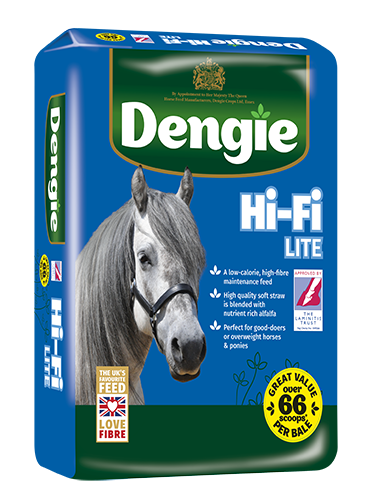Assessing your horses workload
Feeding your horse can seem like a minefield, but one mantra that every horse owner should start with is “feed according to your horse’s bodyweight and workload”. Whilst this sounds simple in practice, how do you know how hard you are working your horse?
Feed manufacturers typically simplify workload into four categories when helping you to decide if a feed is appropriate for your horse – maintenance, light, medium and hard work. Here we look at the description within each category.
Horses at maintenance
Horses at maintenance are those that are not taking part in any ridden or enforced exercise such as those that are retired. Their energy requirements are simply those to support their normal bodily functions and to maintain weight.
Many horses at maintenance will easily maintain their weight on grazing and forage alone. They are unlikely to need a significant amount of bucket feed in order to supply additional energy or calories but it is important to remember that UK pasture and forage typically lack certain trace minerals. Pasture is usually lacking in copper, selenium and zinc and conserved forage can be short of vitamin E as well, particularly as it ages. Horses at maintenance should therefore be offered a balancer or vitamin and mineral supplement in a small amount of a low-energy chopped fibre feed, such as Hi-Fi Lite to top up on these nutrients.

Horses in light work
Horses in light work are generally described as doing light hacking and schooling, mostly at walk and trot with some canter, for a maximum of 1 hour daily. Local, unaffiliated competitions are probably only light work for most horses and ponies too. In practice, the need to add a supplementary feed as workload increases really depends on how well your horse maintains their weight. It doesn’t matter how hard they are working, if they are still overweight then they clearly don’t need more energy! Body condition scoring is the best tool to know if you are supplying sufficient energy in the diet; a condition score 3 on the 5 point scale is about right for most leisure horses.
Good do-ers in light work may simply require a ration that’s similar to those at maintenance. For those that don’t hold their weight quite as easily, opt for feeds that supply around 8-10MJ/kg digestible energy (DE) such as Hi-Fi Molasses Free, Healthy Hooves Molasses Free or Alfa-A Lite. Using feeds high in fibre will provide slow-release energy helping to reduce the chance of over-exuberant behaviour.

Horses in medium work
A horse in medium work is usually expected to be doing regular schooling for around an hour a day and competing in affiliated competitions. Feeds for horses in medium work are typically formulated to provide 10-12MJ/kg DE. The higher level of energy in these feeds comes from the use of more digestible fibre sources such as alfalfa and sugar beet or the inclusion of more oil. For example, Alfa-A Molasses Free, Healthy Tummy or Meadow Grass with Herbs
The requirements for antioxidant nutrients such as vitamin E and selenium also increases with increasing workload and so feeds for horses in medium work or above will also contain higher levels of these nutrients. Regular training will also increase the amount of sweat produced and so an electrolyte supplement should be added to the feed on a daily basis to meet requirements for horses in medium work or above.
Horses in hard work
A horse in hard work is competing at higher levels and their training and schooling reflects this. Eventers and racehorses will do more faster work in their training whereas dressage horses work harder to do more advanced movements. Show jumpers often compete very frequently and the rigours of travel may also increase the horse’s energy and nutrient requirements. Feeds for horses in hard work are typically formulated to provide 12 MJ/kg DE or more. To provide this high level of energy feeds can include either more cereals or more oil. Feeding a high level of cereals does increase the risk of digestive problems such as gastric ulcers and colic. Therefore for horses in hard work choose a high fibre feed with a high oil content, such as Alfa-A Oil or Performance fibre.




